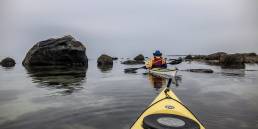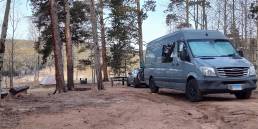Prior to 2007, I was living the dream, as they say, riding my bike and working out at the YMCA here in Nashua, New Hampshire. I loved being outdoors, even if I wasn’t trying to be Jungle Jim. The Y was a very friendly place for me, as I kept discovering new friends. Lung cancer was the last thing on my mind.
I hear similar stories time and again. I’m active, I ride my bike as much as I can, and I work out at the Y very frequently. My goals were simple: lose weight and enjoy the fresh air as I ride. My energy level was great as I defined it, and I was a happy camper. OK, sure, maybe I wasn’t losing as much weight as I would have liked, but I felt very good.
Like so many others, I thought lung cancer was not going to happen to me. It’s just not. These things happen to other people. It’s not that I ever really thought about it, except when friends were learning to live with cancer, but even then, I couldn’t relate to their issues at all.
Like so many others, I thought lung cancer was not going to happen to me. It’s just not. These things happen to other people.
In September of 2007, I had surgery to remove a benign tumor in my parotid gland. A few months later, I had a follow-up CT to check on the surgery. It was fine, but the radiologist discovered a small spot in my right lung’s upper lobe. I was then turned over to the pulmonologist, who followed it for a year. All this time, I was in pure denial and just couldn’t believe that it might possibly be lung cancer. In the end, of course that’s what it turned out to be. It was diagnosed as Stage 1A adenocarcinoma and was surgically removed in July 2009.

I left the hospital, believing that I was finished with lung cancer. I didn’t require any follow-up chemo or radiation, nor did I need any drugs. Baby, I was a free bird and loving it. After about six weeks, I got back on my bike, so I could keep moving. It was an exercise that I fully enjoyed. After two weeks of riding, pneumonia raised its ugly head, but they had told me this might happen. This was normal.
Soon, I was back on the bike, and 10 months later in May 2010, I rode 25 miles in the American Lung Association’s first Cycle the Seacoast trek in Portsmouth, New Hampshire. My team was named Bergie’s Bikers, and we raised a pretty good sum each year for the ALA.
After my surgery, everything was going great. I was out riding and doing just about anything I wanted to. My friends at the Y continued to encourage me with strength training along with working on my stamina. I have to say, life was very good without cancer.
However, as the saying goes, all good things must come to an end.

Maybe it’s my asthma acting up?
In the spring of 2014, I was feeling a little weaker, my strength waning just a bit. But, just as in the past, I didn’t link it to anything. On the first Sunday in May, I was back riding in the Cycle the Seacoast trek, and this time, it really took it out of me. I thought, “Maybe it’s my asthma acting up?”
In July 2014, I went back to the Lahey Hospital and Medical Center for my annual CT scan. It was no big deal. As a matter of fact, it became rather routine, as, each year, the reports came back excellent. I expected the same for my five-year CT. It should be just as clean as in the past. That wasn’t the case, however.
My new diagnosis was Stage 4 Non Small Cell Lung Cancer (NSCLC), metastasized to my lymph node and my lumbar spine. To say the least, the game had changed.
My medical oncologist came into the exam room, and I stood up to shake his hand. “So, we’ve got some cancer here, huh! Well, I’ve got good news and bad news. Which would you like first?” As the brave soul that I am, I opted for the latter. He came right out with it: “You’ve got Stage 4 non small cell lung cancer, and it’s incurable. So, I think we’ve got options for you. Let’s sit down, and we’ll talk about those options.”
I look forward to my next ride, whenever that is.
The options were pretty simple. The first thing we would do is have 10 days of radiation on my back at L-3. Following that, the initial treatment plan involved targeted therapy with a drug called Tarceva.
My oncologist tells me that most patients taking Tarceva can only do so for six to nine months. I have been taking this drug since September of 2014 and am happily in remission.
Obviously, my first five years as a cancer survivor were pretty simple, with lots of healthy activity, but all of that changed in 2014. Nevertheless, I smile and laugh a lot, I remember that life is good, and I keep working hard. None of this means the time has been easy and a bowl of cherries, however. It hasn’t been. But, when life is a struggle, it remains worth living. Since 2014, my cycling has morphed into volunteering. I continue to work on my strength in hopes of getting back on the bike for a future Cycle the Seacoast. I look forward to my next ride, whenever that is.
Eric Bergeson
Eric Bergeson has lived and worked in New England since the age of seven, growing up in Massachusetts and currently living in Nashua, New Hampshire. A USAF and Vietnam Era veteran, he retired in 2005 and discovered cycling as a sport that could help to maintain his good health. His love of cycling and as lung cancer survivor has drawn him to the American Lung Association (ALA) since 2010 as a cyclist and volunteer in the annual Cycle the Seacoast Trek. He has been a lung cancer survivor since 2009, and life is good!




